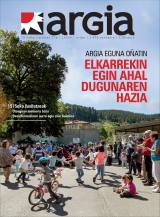The possibility of achieving independence in Catalonia has raised the alarm in the Spanish Government, also among the Spanish parties, both right and left, institutions such as the Constitutional Court and all its media terminals. They are all in a real dirty war against the Catalans and their economy. The arguments they have used are many: employment, bread, pensions, savings, public services, corporate relocation, etc. According to the promoters of the dirty war, if independence were declared in Catalonia, chaos would be thrown out, catastrophe, unemployment and poverty would grow, because not paying pensions would be a country isolated from Europe and the rest of the world. The arguments for generating fear are the attempt to reduce the right of citizens to vote freely.
There is, however, reason to believe that independent Catalonia would be economically viable, would provide more welfare and the markets would have more confidence in Catalonia, because it would remain one of the richest countries in Europe. That has not been said just by the Catalans. Nobel Prizes in Economics for 1992 and 2004, former directors of the International Monetary Fund, Eurostat, Swiss Bank Credit and the German Bundestag Bank, Financial Times, The Wall Street Journal… All of them have provided data favorable to the independence of Catalonia.
It would therefore be desirable, instead of rejecting the dirty war, to stop making threats and giving arguments that bolster a disaster, to discuss serious, opposing and favorable economic arguments between the citizens, both for Catalonia and for Euskal Herria. There are, for example, the words of Josep Borrell and Joan Llorach in the book The Tales and Accounts of Catalonia, apparently vetoed at TV3 – the television network says that it has proposed an interview with the authors after the elections. Citizens have the right to know precisely the economic arguments for and against. And once the vote has been taken, let everyone respect what the ballot box says, and in this case, better if it is a referendum.
Astelehen honetan epaituko dituzte Artur Mas Generalitateko presidente ohia eta, bere lehendakariorde Joana Ortega eta hezkuntza sailburu Irene Rigau, 2014ko azaroaren 9ko kontsulta antolatzeagatik.
Kataluniako Parlamentuko presidente Carme Forcadellek, desobedientzia eta prebarikazio delituak egotzita Kataluniako Auzitegi Nagusian deklaratuko du gaur. Hainbat hautetsi eta herritarrek babestuta joan da epaitegira.
Pentsatu baino lehenago ekin dio Kataluniako Legebiltzarrak Espainiarekiko deskonexioari. Urratsak dira, sinbolikoak, baina hortik hasten da. Espainiak Brunete juridikoa mobilizatuko du lehenbizi. Hemen prozesuaren unea hobeto ulertzeko zazpi gako.
Independentziarako prozesua “atzeraezina” dela azpimarratu du CUPek, eta prozesuan “eskuzabaltasunez” jokatzeko prest agertu da. Baldintzak jarri dizkio Junts Pel Siri. Argi utzi du alderdiez haratago doala prozesua, eta nork baino, zer, noiz eta... [+]
30 DECEMBER 2004, the Basque Parliament approved the Ibarretxe Plan with three essential votes – three to three sides – of Batasuna, although it showed clear opposition to it in the previous weeks and months. The surprise was of great magnitude in Basque society and also in... [+]
The Guardian egunkari britainiarrak Artur Mas Kataluniako jarduneko presidentearen artikulua publikatu du astelehen honetan. CDCko buruak independentzia prozesuaren errepasoa egin du, Espainiako agintarien jarrera kritikatzearekin batera.
Nork irabazi du sezesio plebiszitua? Inork ez, ez baietzak ez eta ezetzak. Halere, horrelako kasuetan, batez ere aldebakarreko independentzia aldarrikapen baten ostertzarekin, baietzak gutxienez gehiengo osoarekin irabazi behar du nazioarteari mezu indartsua bidaltzeko.
CUPeko diputatu hautetsia den Anna Gabrielek Catalunya Radion adierazi duenez, zentzugabea litzateke Artur Masen aukeraketaren inguruan piztu den eztabaidak hauteskundeen ostean ireki berri den prozesua oztopatzea.
Above and beyond the revolt of the Spanish media, the result of the Catalan elections is clear: independence has won the elections. Of the 135 deputies, 72 are independentists (62 JxS and 10 CUP), an undisputed independence majority, especially as independence achieved its best... [+]
Espainiako hedabideen zalapartaren gainetik, Kataluniako hauteskundeen emaitza argia da: independentismoak hauteskundeak irabazi ditu. 135 diputatuetatik 72 dira independentistak (62 JxS eta 10 CUP), gehiengo independentista eztabaidaezina.
Plebiszitu izaera denek aitortu dioten hauteskundeak independentziaren aldeko indarrek irabazi dituzte: 72 eserlekurekin gehiengo osoa eskuratu dute Junts Pel Sí eta CUPek, eta bototan gutxigatik ez dira heldu %50era. Espainiako gobernuak ‘knockeatuta’... [+]
Ez dut uste ordea Mas ez den beste hautagairik presidentea izango denik. Finean, Mas CDC, ERC, Omnium eta ANCren arteko akordioaren hautagaia baita, ez alderdi batena soilik.
Mundu osoko hedabideetan izan du oihartzuan irailaren 27ko Kataluniako plebiszituak. Hauek hauteskunde autonomiko arruntak baino gehiago izan direla nabarmen geratu da, baita independentismoak irabazi dituela ere.























